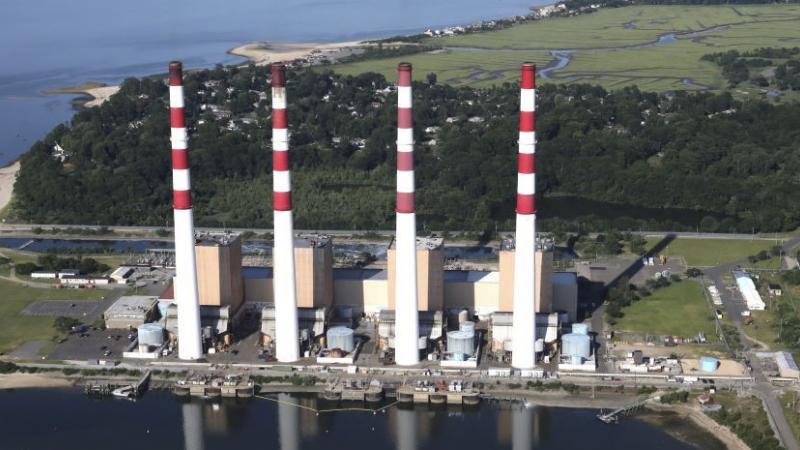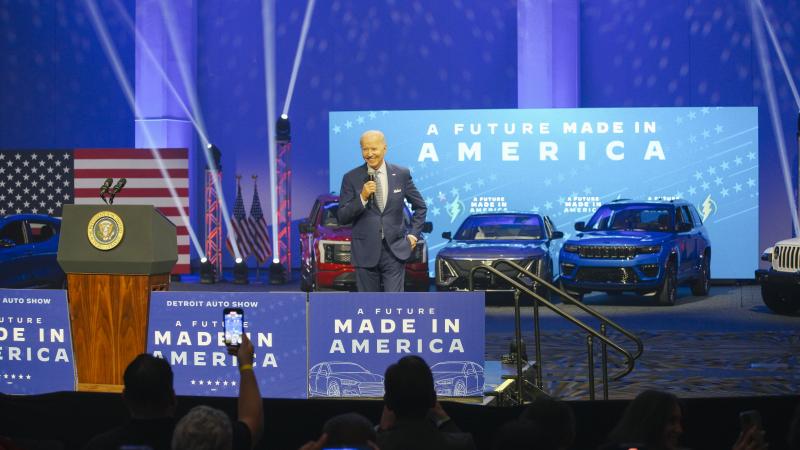State, local legislatures eye bans on gas-powered lawn equipment
Several states are rushing to prohibit gasoline-powered mowers, blowers and trimmers in dash to new, zero-emissions economy.
While the Biden administration and its Green New Deal allies have been expanding their list of technology targeted for forced obsolescence deeper into the realm of American family and private life to include gas stoves, light bulbs and traditional cars, local and state officials are stepping up the ongoing war against gas-powered landscaping equipment for both commercial and home use.
Over 100 localities across the U.S. have imposed bans on gas-powered lawn care equipment, according to the Washington Times. They may soon be joined by Dallas, whose municipal Environnment and Sustainability Committee last year recommended that the city "fully implement City-staff transition to electric equipment."
The Dallas committee cited case studies from other large jurisdictions like Washington, D.C., which has decreed that "no person sell, offer for sale, or use a gasoline-powered leaf blower," and Montgomery County, Md., which is weighing similar legislation.
In 2021, California extended a patchwork of local efforts statewide when Democratic Gov. Gavin Newsom signed AB-1346, which "prohibit[s] engine exhaust and evaporative emissions from new small off-road engines” by 2024 on the grounds that they "emit high levels of air pollutants."
Landscaping industry advocate Andrew Bray told Just The News that while he understants that "innovation occurs" and a "transition is coming," a "responsible transition" is a must.
"It's hard to turn it on and off like a light switch," said Bray, senior vice president of government relations at the National Association of Landscape Professionals (NALP). "There continues to be significant issues with cost, performance, and infrastructure."
The infrastructure concerns are both macro and micro, Bray explained. On the macro level, "we still have some supply chain issues ... dealer networks that aren't prepared to help maintain the equipment" and power grid feasibility, he said.
On the micro level, "people have to retrofit their shops," which entails a massive electric overhaul with untold up-front costs.
"We've also got to look at your fleet," Bray said of landscaping companies. "How are you going to charge on the go?"
Ultimately, Bray discourages legislators from implementing an "arbitrary timeline ban" as many are. Rather, he wants to "incentivize and educate landscape professionals to responsibly make this transition."
The NALP lobbied "aggresively against" the California bill in 2020, he recalled, deeming it superfluous because "the California Air Resource Board already had the authority" to enact such restrictions. The NALP still has problems with the transition, Bray noted, citing supply chain, pricing and performance issues.
The NALP has repeatedly requested that California "delay the implementation of the ban on sales for commercial grade equipment," he said, but to no avail. They also requested additional funding because the $30 million the state set aside was, he said, "woefully" insufficient.
"When you actually extrapolate [the $30 million] out to all the equipment in the state of California, it's something like $2 per piece of equipment," he said.
California is home to "the most rolling blackouts of any state" due to its weak energy grid, Bray noted, arguing that fast-tracking green energy mandates "makes it so that, the very next day, we might not be able to operate."
Despite such concerns, other states could follow suit. Rhode Island is eyeing a ban on gas-powered lawn equipment by 2028, New Jersey introduced legislation outlawing the sale of gas leaf blowers, and New York state Sen. Pete Harckham has introduced legislation to mandate "zero emission 'lawn care devices' by 2027," claiming such a move is "imperative" to fend off so-called climate change.
Colorado is also looking to require homeowners and landscapers to transition to electric equipment. The state has draft policies for metro Denver to eliminate "all sales of gas-powered home lawn mowers, trimmers and leaf blowers” by 2025, the Durango Herald reported.
Concerns with electric lawn care equipment revolve around performance and cost.
"The most obvious benefit of electric yard equipment, is that there's no gas engine to maintain —no oil, spark plugs, or air filters to change," smarthome expert Craig Lloyd acknowledged in 2018 at howtogeek.com.
The tradeoffs for easier maintenance, however, include higher costs and less power, according to Lloyd. "You can get a battery-powered lawn mower or string trimmer for about the same price as their gas-powered equivalents," he wrote, "but if you want something that will perform really well, you'll be paying dearly for it."
Moreover, he added, with charges lasting only 30-60 minutes, long recharging times and cumbersome cords, electric equipment is often impractical for larger yards.
"I always like to say that you can never go wrong with gas-powered yard equipment," Lloyd concluded. "They're tried and true, have been around for decades, and always provide ample power wherever and whenever you need it."
Follow Addison on Twitter.















